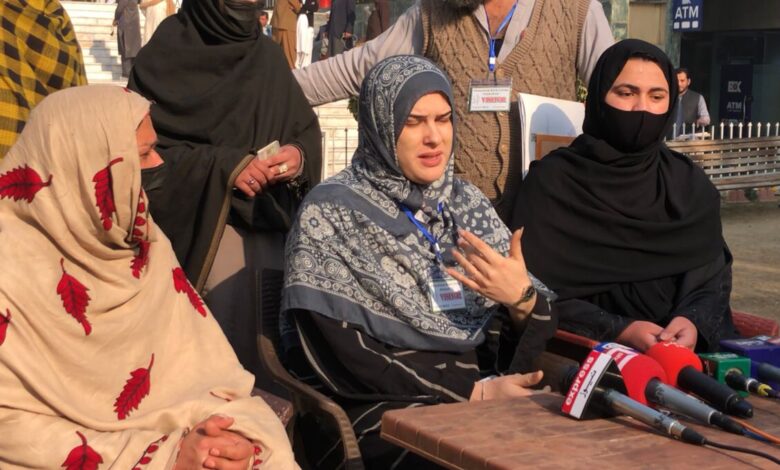
The Peshawar High Court has instructed the federal government to respond to concerns over the potential deportation and harassment of Afghan transgenders. Afghan transgenders, facing threats to their lives in Afghanistan under Taliban rule, expressed their reluctance to return.
A two-member bench, led by Justice Shakeel Ahmed and Justice Waqar Ahmed of the Peshawar High Court, addressed a petition challenging the repatriation of 16 Afghan transgender women.
Mumtaz Ahmed, the legal representative for Afghan transgender women, informed TNN that on October 10, 2023, the federal government issued an order for the return of foreigners, prompting many Afghan refugees to initiate repatriation procedures. However, fearing for the safety of transgenders, artists, and media workers under the Islamic Emirates government in Afghanistan, a writ was filed in the High Court.
Advocate Mumtaz detailed that numerous transgenders, registered with the United Nations Commission for Afghan Refugees (UNHCR), sought refuge in Pakistan following the evacuation from Afghanistan. The 1903 Agreement authorizes UNHCR, on behalf of the Government of Pakistan, to confer legal status upon registered Afghan nationals.
In the writ, Mumtaz urged the court to recognize the legal status of Afghan transgenders and issue directives to prevent harassment. The court connected this request with the decision against deporting artists, seeking a response from the federal government.
Also Read: Teachers in North Waziristan Issue Ultimatum: Classes to be Boycotted from February 22
Advocate Mumtaz Ahmed expressed concerns, stating, "The Afghan Taliban have explicitly targeted media, artists, and transgenders in their governance. Numerous incidents depict the brutal treatment of individuals from these groups. To escape such threats, Afghan transgenders seek refuge here for a peaceful life."
Mumtaz emphasized that the court had issued instructions to prevent harassment of transgenders. He added, "Any continued harassment by the police would be unlawful. In several cases, we have presented court orders to the police, and they have complied."
According to data from the Ministry of Interior in Pakistan, over 600,000 people entered the country from Afghanistan after August 15, 2021, with more than 286,000 returning. Following the High Court hearing, Afghan transgender Hawriya shared with TNN that approximately 43 transgenders in Khyber Pakhtunkhwa, registered with the government, are facing deportation pressure from the authorities.
Hawriya asserted, "Returning to Afghanistan means certain death, as there is no regard for women's or men's rights. The protection for transgender women is non-existent." Living in isolation in Pakistan due to fear of police harassment, Hawriya called for sufficient time for UNHCR to decide their cases for relocation abroad.
Pakistani citizen transgenders also perceive Pakistan as unsafe, citing incidents of killing or harassment by the police upon returning from public programs.
Transgender rights activist Mahi Khan, herself a transgender, reports that 125 transgenders have lost their lives in Pakistan over the last 15 years, with hundreds more suffering injuries.
Reflecting on the High Court hearing, she states, "When the term transgender is mentioned, their challenges are universal, whether in Pakistan or Afghanistan. The advantage for Pakistani citizen transgenders is the freedom to move around, while Afghan transgenders are denied this right. However, everyone faces issues like cruelty and violence."
Khan highlights the significant problem faced by Afghan transgenders—the refusal of the imposed government to acknowledge them. She appeals to the government and the police department to refrain from harassing them until UNHCR addresses their relocation cases.
The court has requested a response from the federal government within fifteen days, postponing the application for the next hearing.